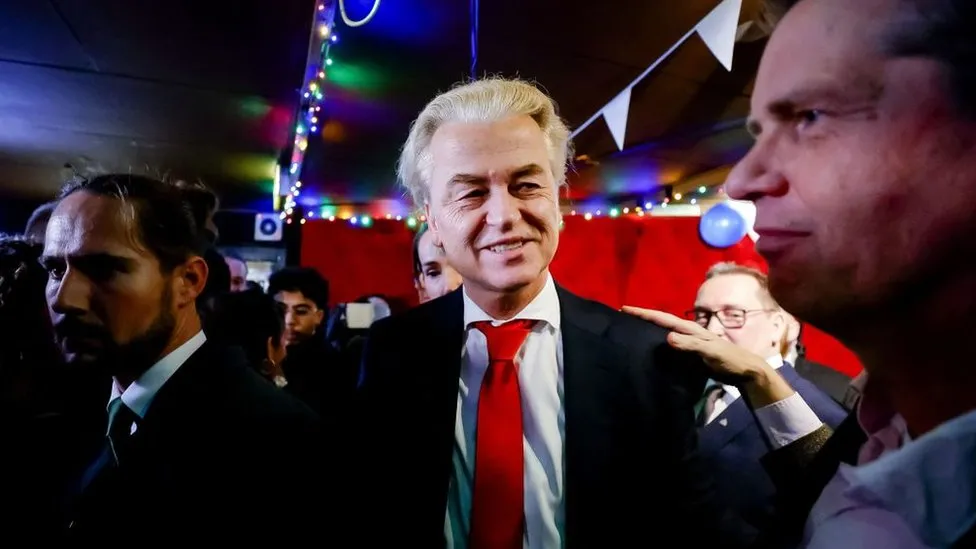The unexpectedly meaty win for controversial, hard-right politician Geert Wilders in Wednesday’s general election in the Netherlands set international headlines on fire.
Right-wing nationalists across Europe rushed to congratulate the populist politician, sometimes dubbed the Dutch Trump – partly for his dyed, bouffant-like hairdo, and partly for his famously firebrand rhetoric.
Geert Wilders’ publicly expressed views – including linking Muslim immigration with terrorism and calling for a ban on mosques and the Quran – are so provocative that he has been under tight police protection since 2004.
Wilders was convicted of inciting discrimination, although later acquitted, and he was refused entry to the UK back in 2009.
But Europe’s far right believes their views have now become more mainstream.
“The winds of change are here!” proclaimed Hungary’s Prime Minister, Viktor Orban, after seeing the Dutch election results. He, like Geert Wilders, is big on anti-immigration themes, as well as Brussels-bashing Euroscepticism.
Far-right Flemish independence leader Tom Van Grieken, who hopes for a similar election breakthrough in Belgium to Geert Wilders in the Netherlands, was quick to conclude: “Parties like ours are on their way in the whole of Europe.”
So, what impact can we expect not only on Dutch but also (and this has the Eurocrats rather anxiously pacing the halls at time of writing), on broader European politics?
Is Geert Wilders’ success as clear-cut as it seems?
In fact, not even the man himself expected to win as many parliamentary seats. You can see his dance of surprised delight in a social media video of him watching results come in on Wednesday.
Wilders’ team reportedly only rented a room to use as a party HQ for election night three days beforehand. His Freedom Party surged in the polls very late in the campaign.
What appears to have attracted Dutch voters was a mixture of:
- Wilders’ focus on restricting immigration, battling the Dutch housing crisis and improving health services. He toned down his anti-Muslim rhetoric as the election approached
- His polished performance in TV debates compared to his rivals
- Mainstream political parties also made immigration a centre-piece of their campaigns. This seems to have led many Dutch voters to conclude that they may as well vote for the “original”. Geert Wilders has arguably campaigned on migration the longest and the loudest on the Netherlands’ political stage.
Also helping Wilders to success, however inadvertently, was one of his rivals.
Dilan Yesilgöz-Zegerius, the leader of the centre-right VVD, opened the door during her campaign to going into coalition with Wilders. That helped soften his party’s extremist image. Until then, the Netherlands political mainstream had ruled out the idea of governing with him because of the nature of his politics.





